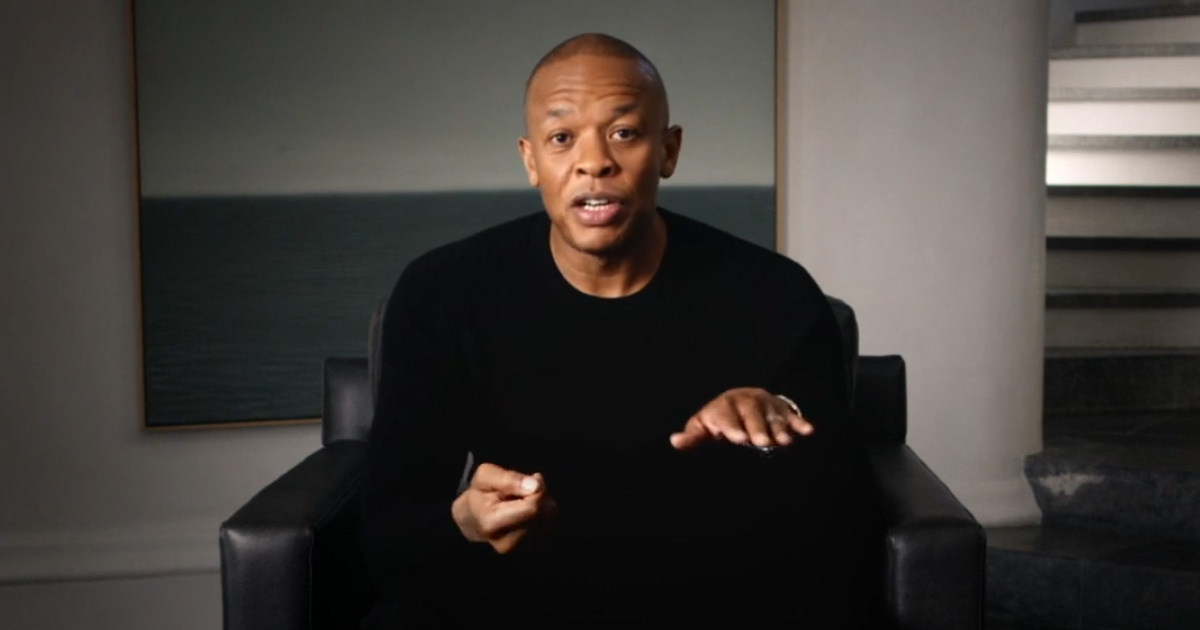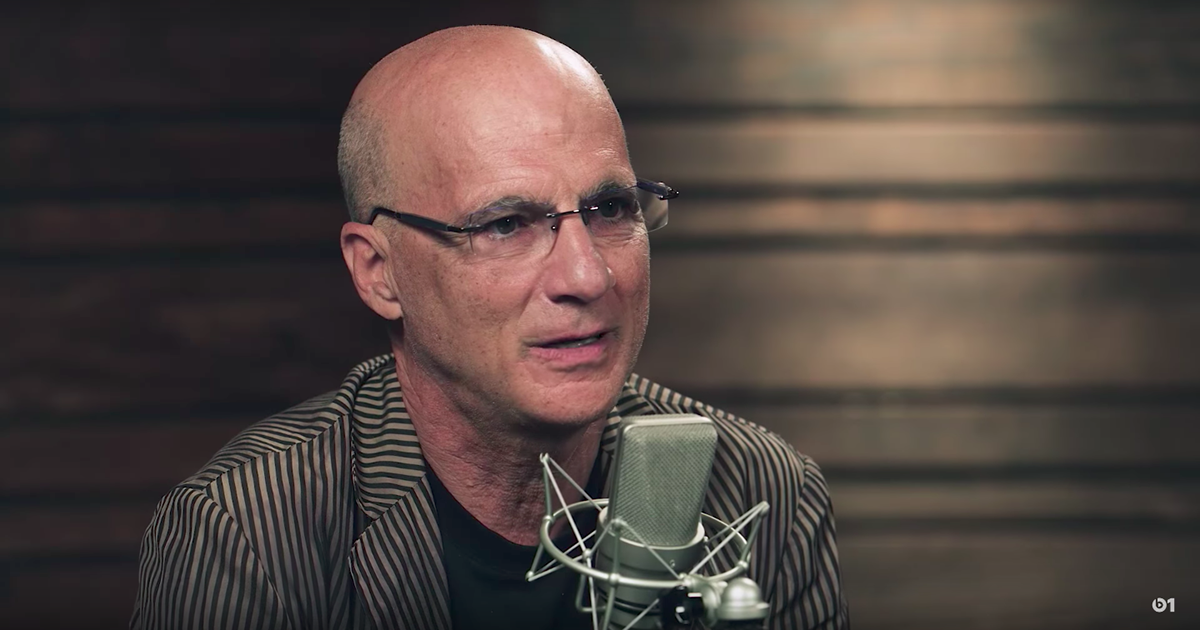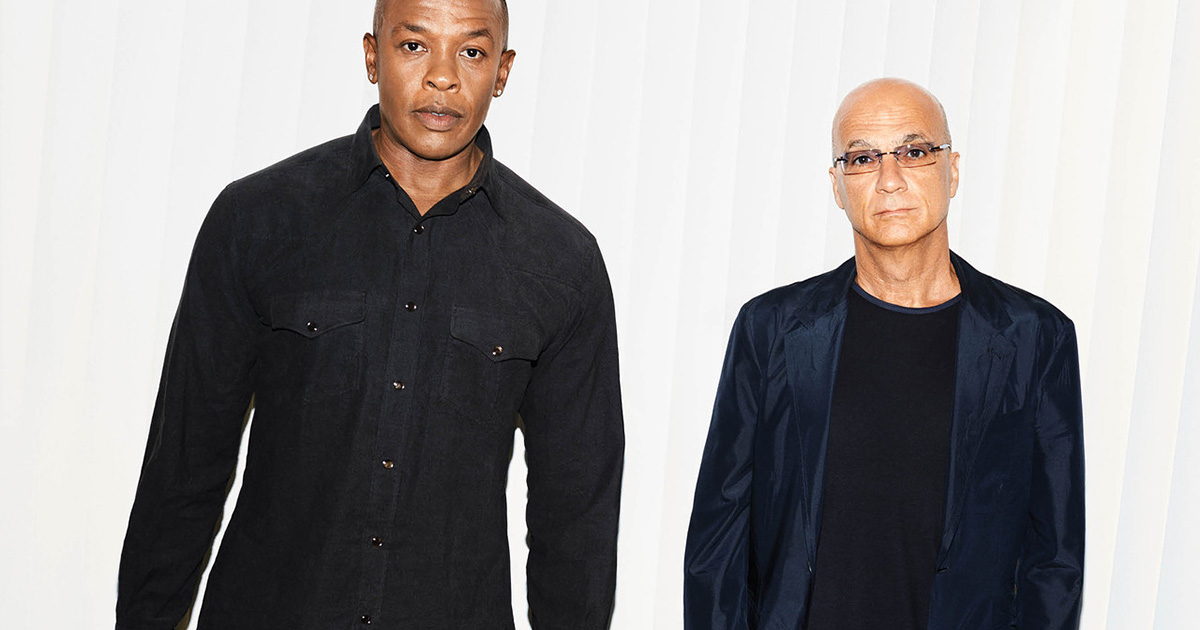Jimmy Iovine
Dr. Dre Recalls His Early Days as a DJ
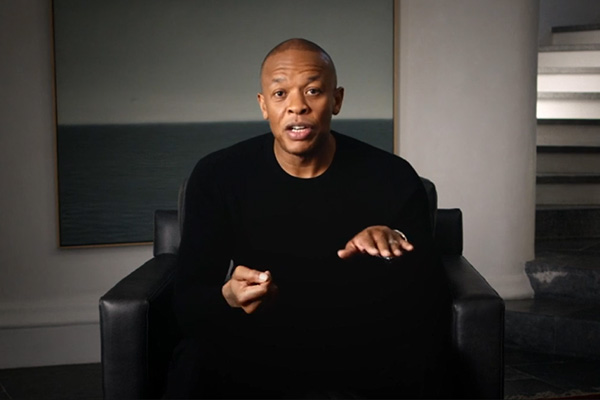
Dr. Dre on The Defiant Ones
Dr. Dre and Jimmy Iovine’s highly-anticipated documentary The Defiant Ones is now airing on HBO. The four-part series traces both of their careers along with their 20-plus-year partnership.
On the first episode, Dre recalls his beginnings as a DJ.
How he got into DJing:
“There was a club in the neighborhood called Eve After Dark. One of my uncles was a bouncer at this club, and he snuck me in one night, and Kurtis Blow was performing. And his little brother, Davy DMX, he was the DJ. This [was] the first time in my life that I saw scratching. It just f#cked me up. I knew that this was my calling. There was a friend of mine, and he put together two turntables, and he used a balance knob to be able to go from turntable to turntable. I started [DJing], and I just fell in love with it.”
His first mixer:
“My mom bought me a Numark [DM]1150 mixer [for Christmas]; I [had] the ability to make tapes. [It was] one of the best gifts I ever got in my life.”
Making mixtapes:
“One of the first times that I performed for an audience was in Eazy-E’s backyard after a block party. Next thing I know, all the kids in the neighborhood were coming over to my house to get their tape. I would shout your name out on the tape, or you could talk on your own tape. This was the first way I started hustling and making money.”
Watch the trailer for The Defiant Ones below.
Related: Jimmy Iovine Recalls Hearing Dr. Dre for the First Time
Jimmy Iovine Recalls Hearing Dr. Dre for the First Time
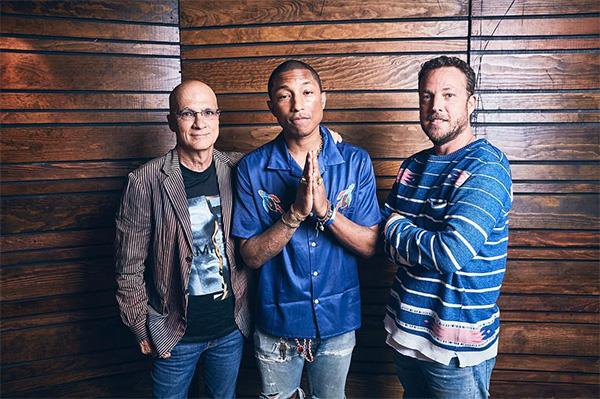
Jimmy Iovine with Pharrell and Scott Vener. (Photo source: Instagram)
Music mogul Jimmy Iovine has been making the rounds to promote his upcoming documentary on HBO, The Defiant Ones. The four-part series, which premieres July 9, tells his and Dr. Dre‘s stories and 20-year-plus partnership.
During a recent interview on Pharrell and Scott Vener’s show on Beats 1 Radio, Jimmy recalled hearing Dre’s music for the first time.
“When I met Dre, and I heard his music on my speakers, it was like when I first heard Phil Spector. … It just sounded like nothing I’d ever heard before. It sounded like it was gonna affect every record that ever came out, including rock music, and I knew nothing about hip-hop. But I just felt it at that moment and I said, ‘This guy will define Interscope.'”
Jimmy admitted he wasn’t a fan of hip-hop at the time, but Dre changed that.
“The bottom end [of hip-hop records] was a mess; I know they were trying to do it on purpose or something. There were 808s, and none of it was making any sense to me. Dre used all that stuff, but he made it sound like Pink Floyd was doing it. And I was like, ‘Okay, this is something special.’ It was different from everything else.”
It wasn’t just Dre’s sonic ability that impressed Jimmy, though. The executive said he saw similarities between the Compton producer and The Rolling Stones.
“I heard [The Chronic], and then I started to understand who these guys were and what they were doing and how much they reminded me of The Rolling Stones. Because the Rolling Stones, when I was a kid, they’d scare you, but they’d bring you in with their music. Their music was so cool that they’d lure you in but what they were doing was their form of anarchy in those days, you know. Snoop and Dre reminded me of Mick [Jagger] and Keith [Richards].”
Among other topics, Jimmy also criticized how the music industry has handled the digital revolution.
Watch him discuss Dre:
Watch him discuss the industry:
Related: Jimmy Iovine Recounts His Early Days as an Engineer and Producer, Launching Interscope
Inside the Partnership of Dr. Dre and Jimmy Iovine
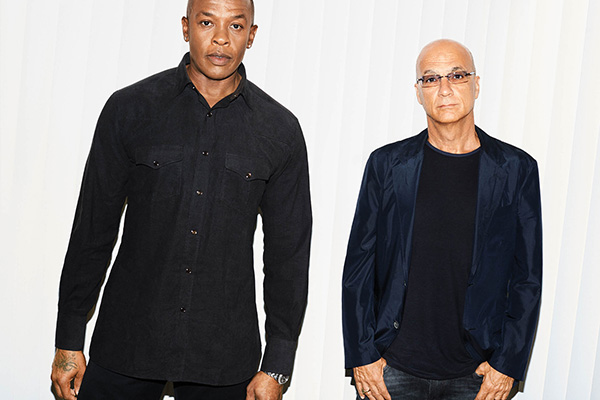
Some analysts have speculated that the reason behind Apple’s recent purchase of Beats Electronics wasn’t to acquire the brand itself, but rather its leaders, Dr. Dre and former Interscope boss Jimmy Iovine. The six-time Grammy-winning producer and industry heavyweight have been the driving force behind the company since founding it in 2008, and this summer, they launched an academy at the University of Southern California with the goal of inspiring the next generation of entrepreneurs.
The Wall Street Journal recently wrote an in-depth article about Dre and Iovine’s business relationship and what they’re hoping to achieve with the program, to which they donated $70 million. Here’s what we learned from the piece:
Iovine started from the bottom.
WJ: “Iovine was the head of Interscope Records for two and a half decades where he helped oversee the careers of U2, Lady Gaga, Gwen Stefani and the Black Eyed Peas. At 19 he got a job sweeping the floors at a Manhattan recording studio, and from there worked his way into a gig as a recording engineer for John Lennon. Within a few years, he was engineering albums for Bruce Springsteen and Tom Petty.”
Dre’s engineering on The Chronic is what initially impressed Iovine.
JI: “I wasn’t a fan of hip-hop … They were playing me hip-hop because Interscope was going to be in the hip-hop business, but it all sounded muddy to me. I’m a recording engineer—it just offended me sonically. Then Dre brought in his record, and it sounded as cool as Pink Floyd or Sgt. Pepper’s. I said, ‘Who mixed this?’ and he said, ‘Me.’ And I said, ‘No, no, but who engineered it?’ And he said, ‘Me!’ And I said, ‘OK, I’m getting into business with you.’”
Beats by Dre started with a chance run-in on the beach.
WSJ: “Iovine was in Malibu, at his friend David Geffen’s house, when he decided to go for a stroll. He happened upon Dr. Dre, who was out on the balcony of his own house nearby. Dre told him he’d been approached a few days earlier by an athletic company about doing a shoe line; his lawyer wanted him to do it, but Dre wasn’t sure. (‘I’m not into fashion,’ he says. ‘I wear the same s— every day.’) He asked Iovine for his thoughts. Iovine’s immortal response: ‘F— sneakers—let’s make speakers.’”
Their business relationship is built on mutual trust.
JI: “We just trust each other … He’s as good a producer and engineer as Michael Jordan is a basketball player. He has an incredible patience that I don’t. And he’s a good touchstone for me. Every time we start going off one way, he’ll say, ‘Nah, man—we’re getting corny.’”
Iovine thinks some tech companies are out of touch with culture.
JI: “We wanted to build a school that we feel is what the entertainment industry needs right now … There’s a new kid in town, and he’s brought up on an iPad from one and a half years old. But the problem with some of the companies up north [in Silicon Valley] is that they really are culturally inept. I’ve been shocked at the different species in Northern and Southern California—we don’t even speak the same language. The kid who’s going to have an advantage in the entertainment industry today is the kid who speaks both languages: technology and liberal arts. That’s what this school is about.”
Related: Apple’s CEO Tim Cook Explains Beats by Dre Acquisition
Popular
-
May 23, 2023
The Best Remixes for Wedding DJs 2023

Wedding season has arrived! DJcity’s Remix Director Sir Marcus has put together a list of wedding-friendly tracks guaranteed to freshen up your DJ sets and...
-
December 22, 2023
Our Biggest Sale of the Year: Join DJcity for $1 🚨

We just launched our biggest sale of the year! Get 90% off a DJcity membership and join for just $1 (regular price $10) for the first month when you check...
-
February 15, 2022
New DJcity Pricing Plans Now Available

Here at DJcity, customer satisfaction is crucial, and therefore we always take input and feedback from our customers and DJ community very seriously. Due t...
-
December 18, 2023
Top 30 Remixes, Bootlegs, and DJ Edits of 2023
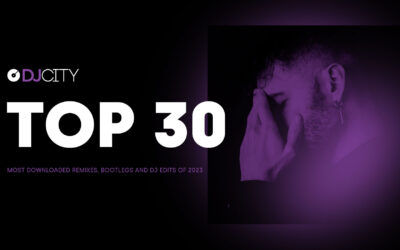
ATCG. Last Thursday, DJcity revealed its most downloaded tracks of 2023. Today, we dive deeper to uncover the most popular remixes, bootlegs, and edits of...
-
April 12, 2024
New and Notable Tracks: Apr. 12

New tracks that DJs should know about.
-
July 6, 2022
Afrobeats and Dance added as Main Genres on DJcity

At DJcity, we are always working to make sure that the way our record pool functions reflects the needs of our users. Therefore in our latest update, we sw...
-
June 4, 2020
50 Cent’s ‘In Da Club’ Remixed by Mr. M!X: DJcity Exclusive
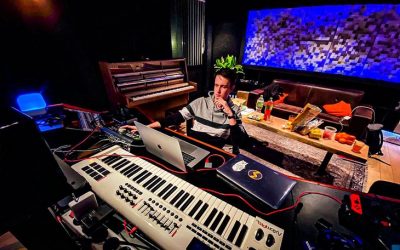
Mr. M!X. (Source:Instagram) Dutch DJ/producer MR. M!X has delivered a remix of 50 Cent's birthday anthem "In Da Club." The moombahton-inspired flip is avai...
-
June 29, 2015
Skrillex and Diplo Drop ‘Where Are U Now’ Video Feat. Justin Bieber
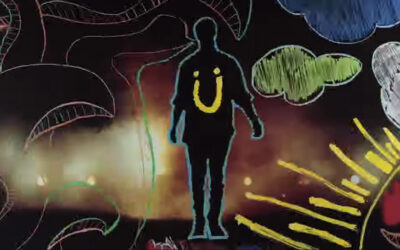
Some fans were skeptical when they discovered that Skrillex and Diplo's debut Jack U album includes a song with Justin Bieber. "Where Are U Now" has...
-
December 20, 2022
Top 30 Remixes, Bootlegs, and DJ Edits of 2022
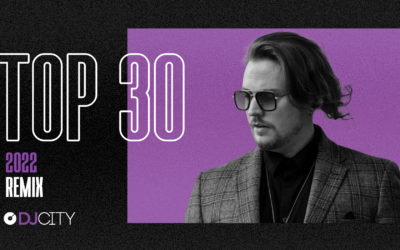
GRAYMATTER. Yesterday, DJcity revealed its most downloaded tracks of 2022. Today, we dive deeper to uncover the most popular remixes, bootlegs, and edits o...
-
December 29, 2020
Top 30 Remixes, Bootlegs and DJ Edits of 2020
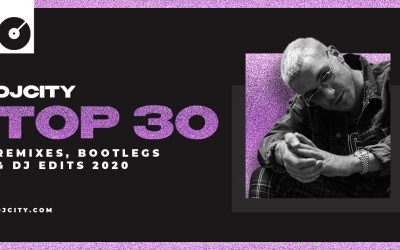
James Hype. Yesterday, DJcity revealed its most downloaded tracks of 2020. Today, we dive deeper to uncover the most popular remixes, bootlegs, and edits o...

